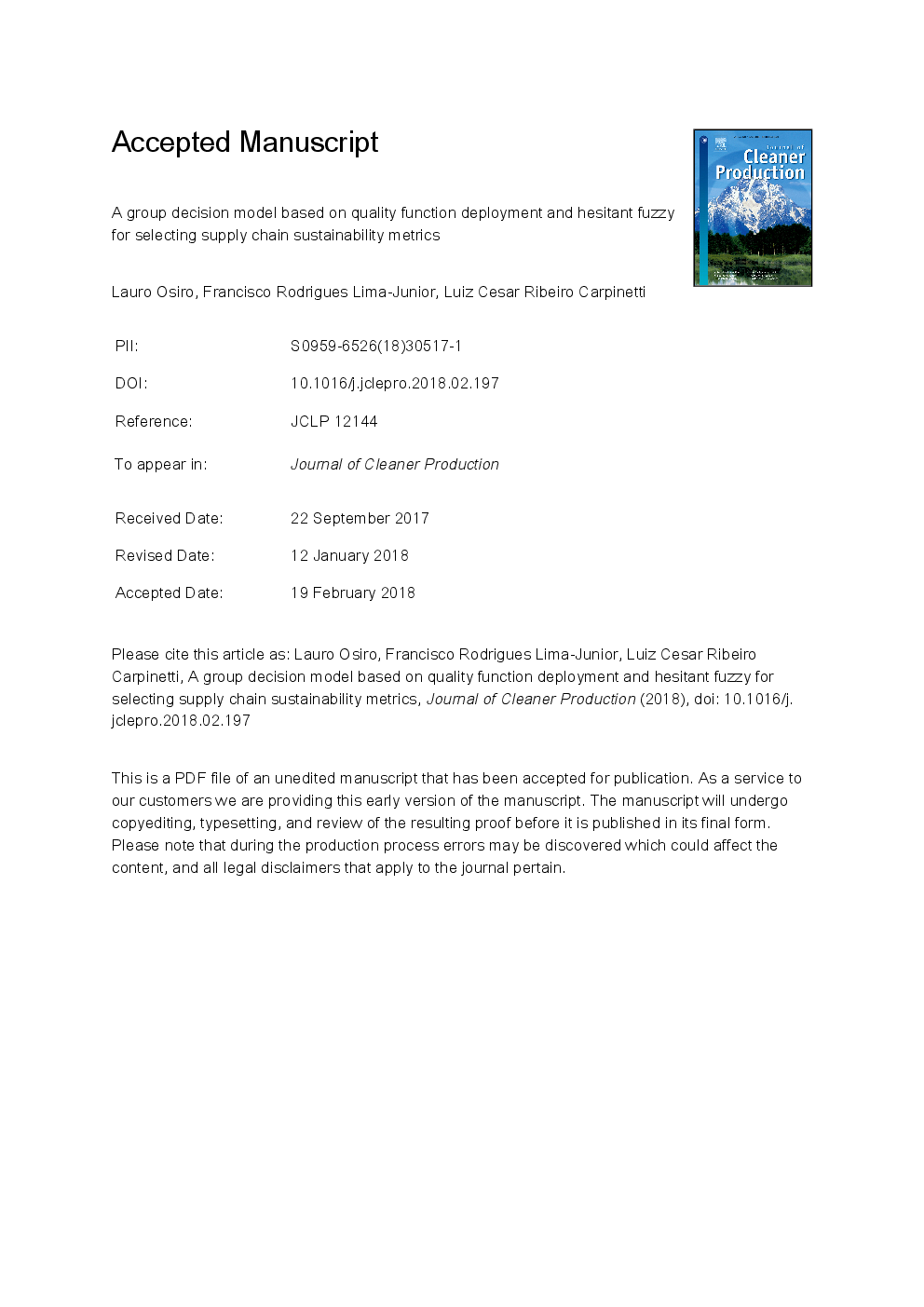ترجمه فارسی عنوان مقاله
یک مدل تصمیم گیری گروهی بر اساس تابع عملکرد کافی و فازی تنگ برای انتخاب شاخص های پایداری زنجیره تامین
عنوان انگلیسی
A group decision model based on quality function deployment and hesitant fuzzy for selecting supply chain sustainability metrics
| کد مقاله | سال انتشار | تعداد صفحات مقاله انگلیسی |
|---|---|---|
| 82054 | 2018 | 43 صفحه PDF |
منبع

Publisher : Elsevier - Science Direct (الزویر - ساینس دایرکت)
Journal : Journal of Cleaner Production, Volume 183, 10 May 2018, Pages 964-978

